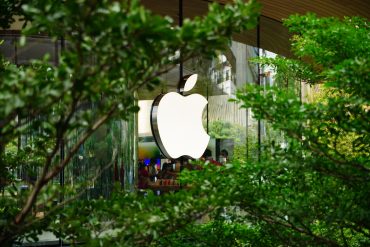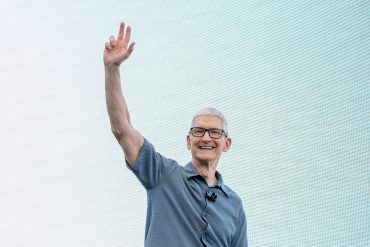
- AI
- Big Tech
- Generative AI
Apple Delays Siri AI Overhaul, Shifts to External Partnerships
5 minute read

Apple’s Siri overhaul delay prompts tech giant to seek partnerships with leading AI companies like Anthropic and OpenAI
Key Takeaways
- Apple delays Siri AI overhaul indefinitely after announcing ambitious generative AI plans at June’s Worldwide Developers Conference, citing failure to meet internal standards
- Strategic pivot to external partnerships as Apple explores collaborations with Anthropic, OpenAI, and Perplexity instead of relying solely on in-house large language models
- Stock drops 1.2% following WWDC 2025 as investors express concern over Apple’s perceived lag in AI innovation compared to Google and Microsoft
Introduction
Apple faces mounting pressure as its ambitious AI transformation remains stalled a year after initial promises. The company announced an indefinite delay to its Siri overhaul at June’s Worldwide Developers Conference, acknowledging that its generative AI capabilities failed to meet internal standards.
This setback marks a significant departure from Apple’s traditional approach to product development. The company now explores partnerships with external AI providers including Anthropic and OpenAI, abandoning its characteristic “build everything in-house” philosophy for the first time in a major product category.
Key Developments
Apple’s AI strategy underwent a fundamental shift this year as internal development timelines extended beyond acceptable limits. The company began serious discussions with Anthropic about integrating Claude into Siri, while simultaneously evaluating OpenAI’s ChatGPT for similar applications.
The pivot represents Apple’s acknowledgment that speed to market now outweighs internal development control in the competitive AI landscape. Sources indicate that Apple’s own large language models consistently underperformed against established external alternatives during internal testing phases.
Apple continues developing its “Apple Intelligence” framework, which emphasizes on-device processing and privacy-first AI experiences. The company recently opened its on-device LLM to third-party developers, enabling private, offline AI capabilities within the App Store ecosystem.

Market Impact
Investor sentiment turned negative following Apple’s WWDC announcements, with shares declining 1.2% as markets digested the lack of breakthrough AI innovations. The drop reflects broader concerns about Apple’s ability to compete with Google and Microsoft in cloud-based AI services.
Apple’s cautious approach creates potential financial implications for its lucrative Google Search partnership. The development of AI-powered Safari could reduce dependence on Google Search, potentially affecting the billions in annual revenue sharing between the companies.
Enterprise markets respond more positively to Apple’s measured rollout strategy. Technology decision-makers in regulated industries view the company’s emphasis on privacy and explainability as strategically mature rather than technologically lagging.
Strategic Insights
Apple’s external partnership strategy aligns with its historical strength in “Build It” innovation rather than foundational research. The company traditionally excels at refining existing technologies into user-friendly products, as demonstrated with the iPhone’s integration of acquired multitouch technology.
The AI pivot positions Apple differently than competitors who prioritize raw computational power and cloud-based processing. This approach may limit Apple’s appeal in enterprise environments seeking highly customizable AI solutions but strengthens its position with privacy-conscious consumers.
According to Forbes, Apple’s strategy reflects broader lessons about innovation focus and strategic partnerships. Companies perform better when they concentrate on core competencies while collaborating to address capability gaps.
Expert Opinions and Data
Industry data reveals mixed reception to Apple’s AI approach across different market segments. Research shows 57% of global CIOs view Apple’s caution as strategic maturity rather than stagnation, particularly in compliance-heavy sectors.
The Greyhound CIO Pulse 2025 survey indicates that 63% of IT decision-makers in regulated industries prioritize explainability and user control over raw AI model performance. This data supports Apple’s privacy-first positioning in enterprise markets.
Frito-Lay executive Joe Ennen’s experience with staged innovation processes demonstrates how companies can create internal divisions focused on different development phases. This model validates Apple’s decision to partner externally for capabilities outside its traditional expertise areas.
Financial analysts remain divided on the long-term implications of Apple’s external LLM partnerships. Questions persist about margin impacts and ecosystem control as the company integrates third-party AI technologies into core products.
Conclusion
Apple’s AI strategy represents calculated adaptation rather than innovation failure. The company prioritizes privacy, user trust, and ecosystem integration over headline-generating generative AI capabilities that competitors emphasize.
This approach creates short-term investor frustration while positioning Apple advantageously with enterprise clients and privacy-focused consumers. The company’s willingness to acknowledge limitations and pursue strategic partnerships demonstrates pragmatic leadership in a rapidly evolving technological landscape.







